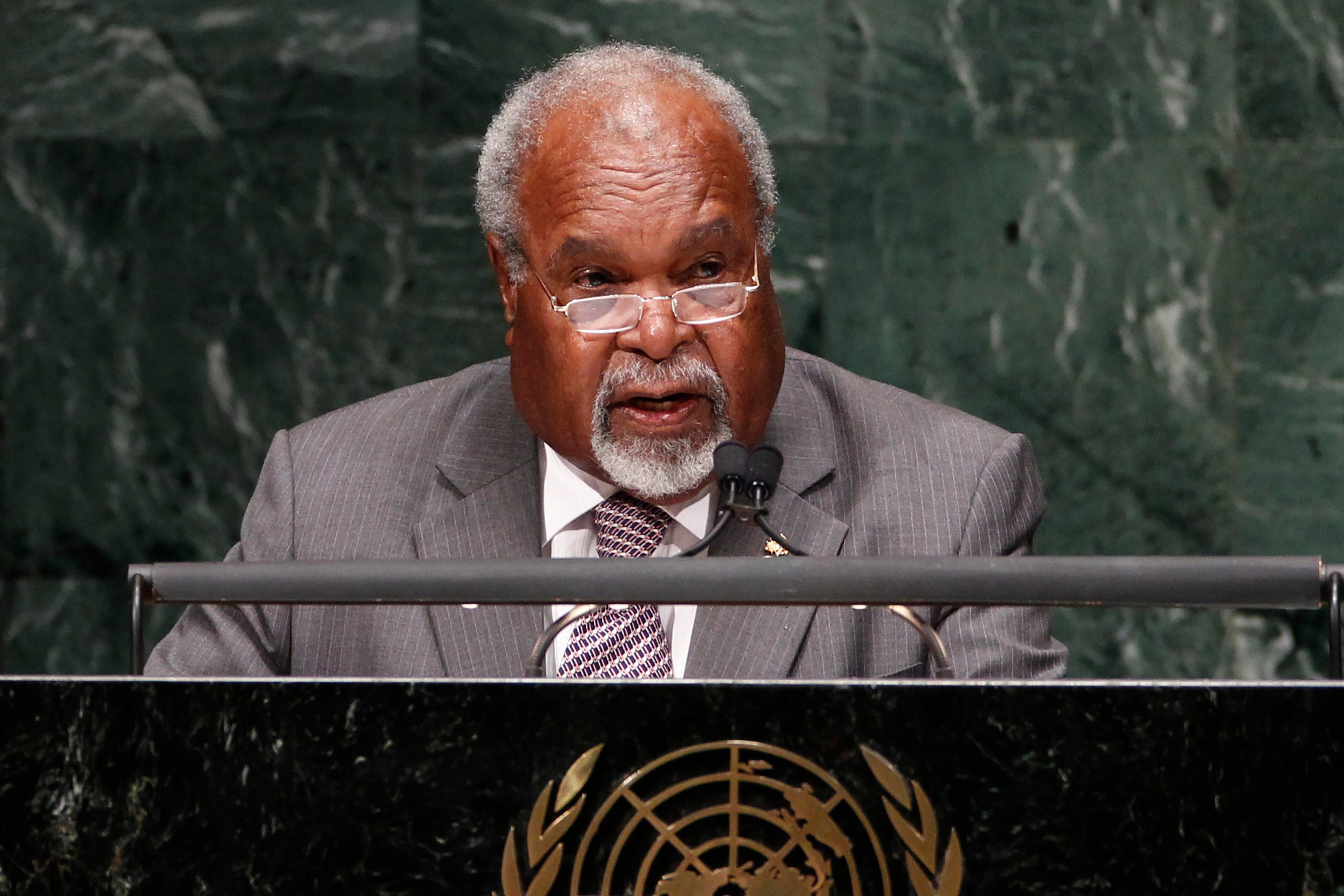Michael Somare, Papua New Guinea's 1st prime minister, dies
Michael Somare, a pivotal figure in Papua New Guinea’s independence and the South Pacific island nation’s first prime minister, has died

Your support helps us to tell the story
From reproductive rights to climate change to Big Tech, The Independent is on the ground when the story is developing. Whether it's investigating the financials of Elon Musk's pro-Trump PAC or producing our latest documentary, 'The A Word', which shines a light on the American women fighting for reproductive rights, we know how important it is to parse out the facts from the messaging.
At such a critical moment in US history, we need reporters on the ground. Your donation allows us to keep sending journalists to speak to both sides of the story.
The Independent is trusted by Americans across the entire political spectrum. And unlike many other quality news outlets, we choose not to lock Americans out of our reporting and analysis with paywalls. We believe quality journalism should be available to everyone, paid for by those who can afford it.
Your support makes all the difference.Michael Somare, a pivotal figure in Papua New Guinea’s independence and the South Pacific island nation's first prime minister, has died. He was 84.
Somare was Papua New Guinea s longest-serving leader after it became independent of Australia in 1975. He was prime minister for 17 years during four separate periods.
He died Friday after being diagnosed with a late-stage pancreatic cancer and admitted to a hospital on Feb. 19, his daughter Betha Somare said.
“Sadly, pancreatic cancer is one of the most aggressive cancers that are rarely detected early. We as a family had only two weeks to look for possible treatments for our father,” she said.
“Sir Michael was a loyal husband to our mother and great father first to her children, then grandchildren and great granddaughter. But we are endeared that many Papua New Guineans equally embraced Sir Michael as father and grandfather."
Papua New Guinea Prime Minister James Marape said that Somare “is unmatched by anyone who has come after him.”
“I appeal to our citizens and residents for a week of silence, peace and calm as we pay respect to this one person whom our country owes so much,” Marape said. “He is universally loved in our country, may his memory bind out nation still."
Cabinet will meet later Friday to announce details of a state funeral.
Somare was born on April 9, 1936, in the city of Rabaul in East New Britain, which was occupied by Japan during World War II. His earliest education was in a Japanese-run school in the village of Karau where he learned to read and write in Japanese.
He was raised the son of a police officer in the province of East Sepik, which he went on to represent in Parliament.
Ron May, emeritus fellow at the Australian National University’s Department of Pacific Affairs and a Papua New Guinea expert, said Somare was one of the Pacific’s most prominent and respected leaders.
“Papua New Guinea made a smooth transition to independence in 1975, with Somare as prime minister, confounding those in Australia and elsewhere who had predicted political and economic collapse,” May recently wrote. “It remains one of a fairly small number of post-colonial states that have maintained an unbroken record of democracy.”
Australian Prime Minister Scott Morrison said Somare, who also held the title of Grand Chief, was a “towering figure in the history of Papua New Guinea.”
“As a driving force in the development of Papua New Guinea’s national constitution, and the nation’s first and longest-serving prime minister, Sir Michael has an unparalleled place in the history of Papua New Guinea,” Morrison said in a statement.
“Sir Michael became a long-standing and respected friend of Australia, working alongside” six Australian prime ministers, Morrison said.
On the 30th anniversary of Papuan New Guinea’s independence, Somare said he was generally pleased with his country’s progress.
“I’m happy about the way things have gone but, you know, we could have done better,” he told Australian’s SBS network in 2005.
His last term as prime minister ended controversially in 2011 while he was in a Singapore hospital. Lawmaker Peter O’Neill successfully moved a motion in Parliament that the post of the prime minister was vacant. O’Neill was elected premier and clung to power despite the Supreme Court twice ruling against him until he was legitimately elected in 2012.
Somare is survived by his wife Veronica and children Bertha, Sana, Arthur, Michael and Dulciana.